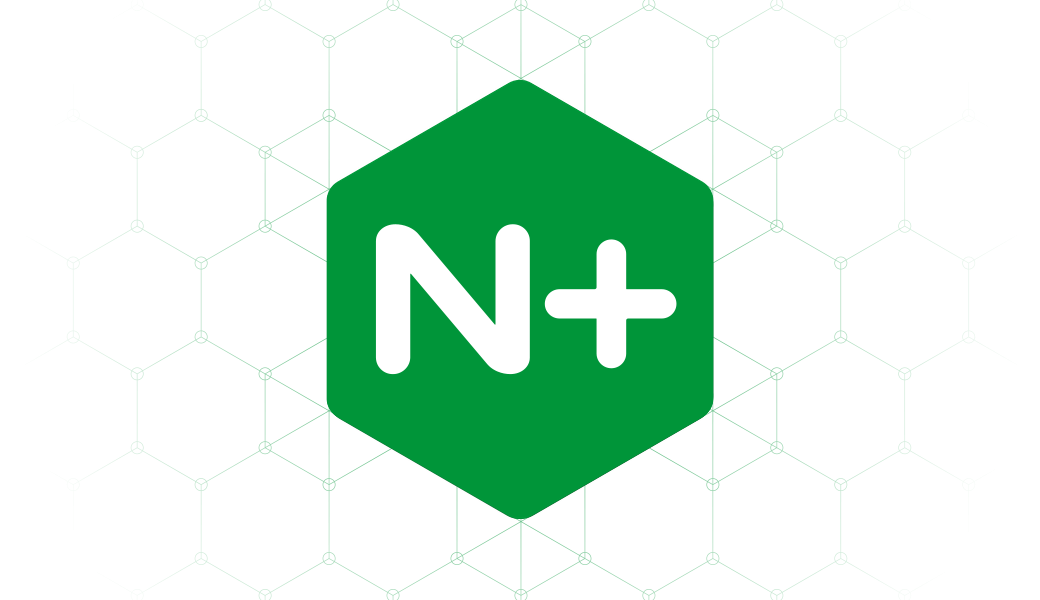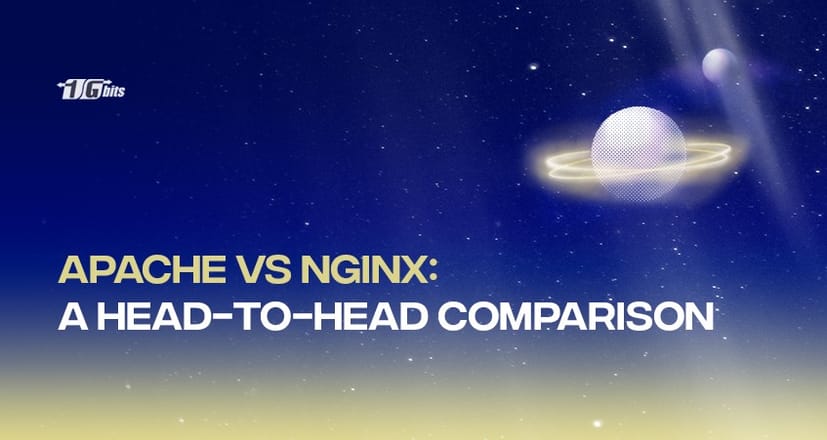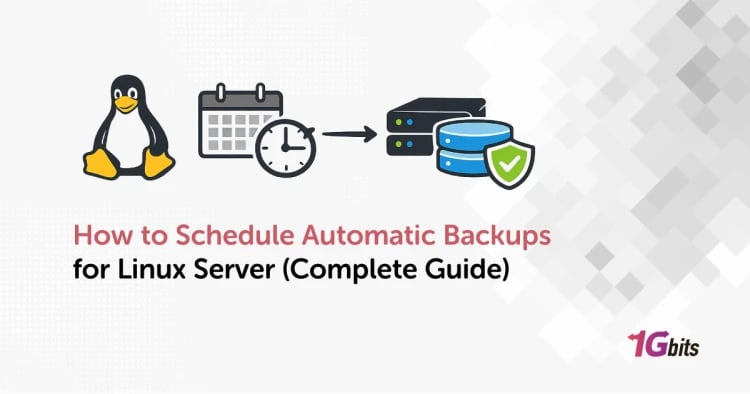Today, several web servers are operating within the industry, but Apache and Nginx have won the game. The next question that comes up is which one to choose between Apache vs Nginx for your business? We will go through a detailed comparison between the two web servers in this article.
Earlier, Apache was commonly preferred due to its ease (or monopoly). However, after the introduction of Nginx, many things have changed as Nginx comes with more advanced features and technology. Apache might not be able to handle a vast number of web users as companies expand and the amount of data grows.
Thus, Ngnix was designed to overcome Apache’s performance issue. With Nginx, you can quickly deploy it as a standalone web server to control concurrent requests and act as a front-end proxy for Apache and other web server alternatives.
This does not mean that Apache is not a powerful tool: it has its own unique advantages as well. It becomes a bit tricky to decide which web server would be the best fit for the business to achieve your long-term business goals.
In this article, we will dive into the Apache vs Nginx details to make your choice a little transparent. Each platform works on a different approach to manage configuration, optimize performance, etc.
What is Apache HTTP Server?

It is an open-source, cross-platform, and high-performance web server developed by Tim Berners Lee in 1995 and maintained by the Apache foundation. You can call Apache HTTP server httpd and Apache.
It was designed to provide web content over the internet and has improved and enhanced the growth and usage of the World Wide Web. Apache is a secure, robust, and efficient commercial-grade server, lined up with the current HTTP standards.
It ensures complete flexibility, simplicity, and power compatibility and can be run on any available platform but majorly with Linux. Apache architecture has Apache core and different modules.
The core components help in accepting the connections and managing the concurrency of incoming requests. The additional modules come with different functionality that allows for the execution of requests.
You can deploy and configure Apache with different modules like security, and manage the dynamic content for request processing. Apache has gained success due to its module One-server-does-all. Apache seems to be challenging to handle with increased traffic and requests due to its performance constraint.
Features of the Apache Web Server
- It helps in loading the dynamic modules.
- It allows you to handle static files, and index files along with auto-indexing and negotiating content.
- It comes with .htaccess per-directory config and HTTP/2 support.
- It has IPv6 compatibility.
- You can implement gzip compression and decompression with Apache.
- You can use the proper module for FTP connections.
Advantages of using Apache Web Server
- Apache is an open-source server that is available for free and can be installed on any platform.
- You can customize the server code as per your business needs.
- You can add more modules and features to improve its functioning.
- It shows high-reliable and evident performance.
- It is easy to install and manage.
- A community of developers actively maintains it.
- It comes with easy-going documentation.
- It allows you to record immediate changes on the server.
Disadvantages of Apache Web Server
- Whenever you modify the configurations and change the code, there might be a chance of open threats.
- Configuration changes may lead to bugs that will require debugging time and will end up consuming resources.
- Apache does not come with a strict updating policy, which needs to be updated frequently.
- It is challenging to recognize and disable unwanted services.
- It might show less performance than Nginx as it may not be able to handle large traffic to your website and may crash due to large overhead.
What is Nginx?

Nginx, commonly pronounced as “Engine X,” Igor Sysoev launched Nginx in 2004 and has gained popularity above Apache due to its immense features and benefits. Nginx is based on an event-driven architecture that enhances and improves the performance and scalability of the webserver.
It works on an entirely different approach than Apache’s process or thread-per-connection. Nginx is capable of handling multiple HTTP connections at the same time. Nginx is famous due to its lightweight, scalable, reliable, and high-performance. It can handle traffic spikes with smooth resource consumption.
Features of Nginx Web Server
- It is now considered a complete web server solution that can handle full server tasks after handling static files.
- Nginx also acts as a reverse-proxy, load balancer, mail proxy, and HTTP caching.
- It is used as a front-end proxy for Apache and other alternative web servers.
- It comes with an embedded Perl interpreter.
- You can rewrite URLs.
- It comes with excellent PCRE support.
Advantages of Nginx Web Server
- It allows users to visit the same URL repeatedly within seconds without impacting the performance and any outage.
- It provides a better caching mechanism than other web server alternatives.
- It is a lightweight server that helps in forwarding the user’s request to the application.
- There will be no extra load on the server if you host multiple sites on the same Nginx server.
- It allows you to rewrite rules for more flexibility in configuring the RRL redirection.
- You can leverage the benefits of Nginx if it is used as a front-end proxy server.
- It shows low overhead and low memory usage.
Disadvantages of Nginx Web Server
- Nginx does not entirely support load balancing as other web servers do.
- With Nginx, you cannot monitor the DDoS attacks or multiple connections from one IP efficiently. Teams have to make sure of the monitoring process as different tasks.
- Nginx does not entirely ensure flexibility to configure more features and requires manual intervention to improve performance.
- You also have to improve Nginx’s logging process. We have to use Unix commands rather than its commands to get the desired output.
- It has less community support and provides fewer module options than Apache.
Difference Between Apache and Nginx
|
Factors |
Apache |
Nginx |
|
Basic Architecture |
It works on a process-driven approach that requires a new and separate thread for each user’s request. |
Follows an event-driven approach that requires a single thread to handle multiple requests. |
|
Performance |
It uses a file-based method to serve the static content. It allows you to process dynamic content within the server. |
It does not require PHP to serve static content. It does not support dynamic content. |
|
OS Support |
It comes with cross-platform support. |
It comes with partial support for all UNIX-like OS and windows. |
|
Centralized Configuration |
You can use .htaccess files to add more configurations on a per-directory basis. |
You cannot add new configurations, and it is a complex process. |
|
Feature Module |
It comes with 60 official loaded modules that can be turned off or on as per your requirement. |
It uses third-party core modules that cannot be loaded dynamically. |
|
Flexibility |
You can use dynamic modules to customize the web server. |
It does not support the loading of dynamic modules and loading. |
|
Security |
It provides excellent security. |
You can achieve security even with a small codebase. |
|
Support |
It has high community support. |
It does not come with extensive community support. |
|
Simplicity |
Easy to develop and innovate. |
It has sophisticated architecture, so it comes with complexity. |
Conclusion
Both Apache vs Nginx have their advantages and disadvantages; still, you cannot replace them with each other. You can choose amongst these web servers, depending on your business requirement.
Apache works on monolithic architecture, but the developers no longer prefer that approach for complex applications. Today, in microservices, Nginx can handle future and upcoming web applications and websites more efficiently. Yet, companies stick with Apache due to its flexibility and capability that may not match with Nginx.
We hope that this article will help you in making the right decision on picking Nginx or Apache for your business.
People also read:






![What Is Cold Data Storage? ❄️ [2026 Guide] What Is Cold Data Storage? ❄️ [2026 Guide]](https://1gbits.com/cdn-cgi/image//https://s3.1gbits.com/blog/2026/02/what-is-cold-data-storage-750xAuto.webp)
![How to Change VPS Password 🔑 [Windows & Linux] How to Change VPS Password 🔑 [Windows & Linux]](https://1gbits.com/cdn-cgi/image//https://s3.1gbits.com/blog/2025/12/how-to-change-your-vps-password-750xAuto.webp)


